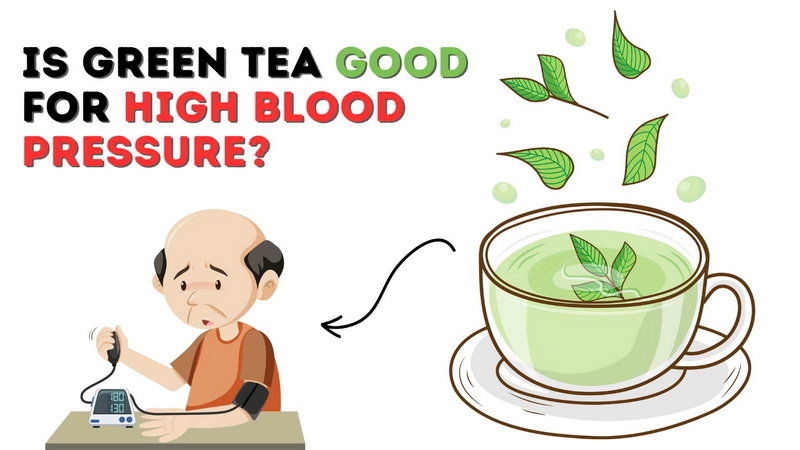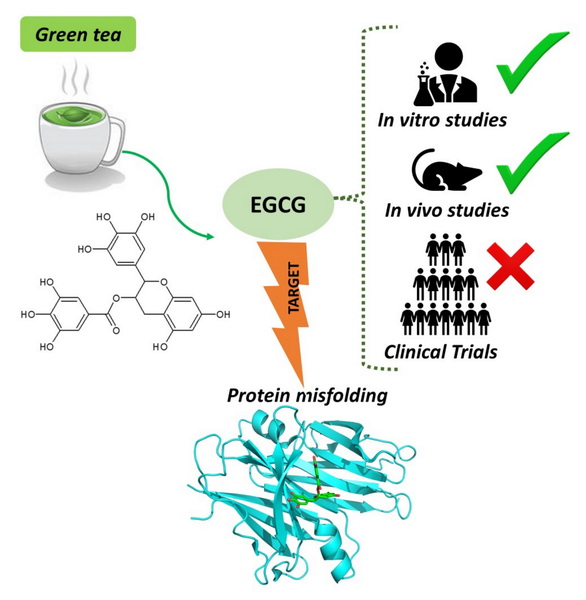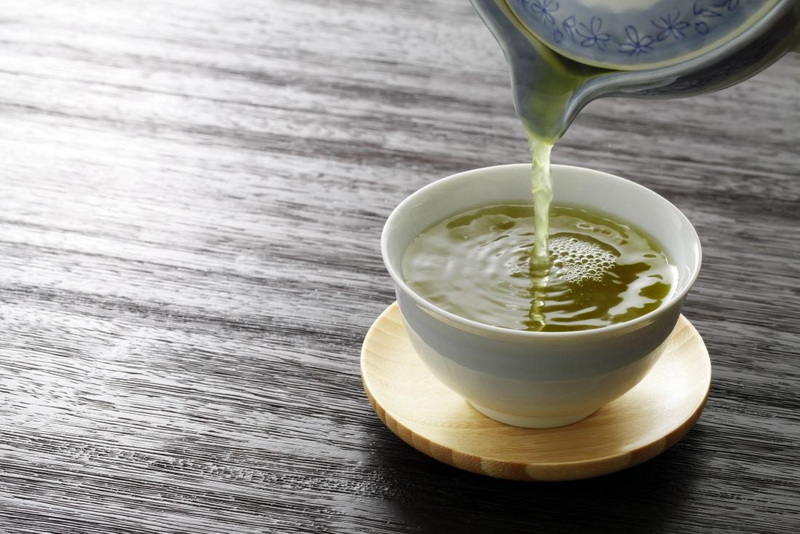Content Menu
● Understanding Green Tea Extract
>> Key Components of Green Tea Extract
● The Effects of Green Tea on Blood Pressure
>> Positive Effects
>> Negative Effects
● Recommended Consumption Levels
● Mechanisms Behind Blood Pressure Regulation
● Expanding the Article
>> 1. Historical Context and Cultural Significance
>> 2. Detailed Analysis of Studies
>> 3. Comparative Analysis
>> 4. Long-Term Health Implications
>> 5. Consumer Guidance
>> 6. Visual Aids
>> 7. Personal Testimonials
>> 8. Future Research Directions
● Conclusion
● FAQ
>> 1. Can drinking green tea lower my blood pressure?
>> 2. Does caffeine in green tea raise blood pressure?
>> 3. How much green tea should I drink daily for health benefits?
>> 4. Are there any side effects associated with green tea extract?
>> 5. Should I consult a doctor before taking green tea extract supplements?
● Citations:
Green tea extract (GTE) has gained popularity for its purported health benefits, including weight loss, improved heart health, and antioxidant properties. However, there are concerns regarding its potential effects on blood pressure. This article explores the relationship between green tea extract and blood pressure, examining both the positive and negative implications of its consumption.

Understanding Green Tea Extract
Green tea extract is derived from the leaves of the *Camellia sinensis* plant and is rich in polyphenols, particularly catechins such as epigallocatechin gallate (EGCG). These compounds are believed to contribute to various health benefits, including cardiovascular health, weight management, and anti-inflammatory effects.
Key Components of Green Tea Extract
- Catechins: Powerful antioxidants that may help reduce inflammation and improve heart health.
- Caffeine: A natural stimulant that can temporarily increase blood pressure.
- L-theanine: An amino acid that promotes relaxation without sedation.
The Effects of Green Tea on Blood Pressure
Research indicates that green tea consumption can have varying effects on blood pressure. Some studies suggest that it may lower systolic and diastolic blood pressure, while others indicate a potential increase due to caffeine content.
Positive Effects
1. Blood Pressure Reduction: Several meta-analyses have shown that regular consumption of green tea can lead to a modest reduction in blood pressure. For instance, one study reported a decrease in systolic blood pressure by approximately 1.98 mmHg and diastolic blood pressure by about 1.92 mmHg among participants consuming green tea regularly[1][7].
2. Mechanisms of Action: The beneficial effects on blood pressure may be attributed to the ability of catechins to enhance endothelial function, reduce oxidative stress, and improve vascular tone. These mechanisms help maintain healthy blood flow and reduce hypertension risk[2][8].
3. Clinical Evidence: A systematic review of randomized controlled trials found that daily consumption of 5-6 cups of green tea could result in reductions in systolic blood pressure, total cholesterol, and LDL cholesterol[1]. Another study noted that green tea supplementation reduced systolic blood pressure by 2.99 mmHg and diastolic blood pressure by 0.95 mmHg in healthy individuals[3].
Negative Effects
1. Caffeine-Induced Increase: The caffeine in green tea can cause a temporary spike in blood pressure, particularly in individuals who are sensitive to caffeine or consume it in large amounts[5][12]. This effect may be more pronounced in those who do not regularly consume caffeine.
2. High-Dose Concerns: High doses of green tea extract have been associated with adverse effects, including elevated blood pressure and liver toxicity. Some reports suggest that excessive intake can lead to serious health issues, including acute liver failure[22][24].
Recommended Consumption Levels
To reap the benefits while minimizing risks, moderation is key. Most studies suggest that consuming 3-5 cups of brewed green tea daily is safe and may provide cardiovascular benefits without significant adverse effects. However, individuals considering green tea extract supplements should consult healthcare professionals to determine appropriate dosages.
Mechanisms Behind Blood Pressure Regulation
The antihypertensive effect of green tea can be attributed to several mechanisms:
- Vasodilation: Green tea catechins may promote vasodilation by increasing nitric oxide production, which helps relax blood vessels[9][13].
- Reduction of Oxidative Stress: The antioxidants present in green tea can help reduce oxidative stress, which is linked to hypertension[4][10].
- Inhibition of Lipid Absorption: Green tea polyphenols inhibit lipid absorption from the intestines and facilitate the conversion of cholesterol into bile acids[1][16].

Expanding the Article
1. Historical Context and Cultural Significance
- Discuss the historical use of green tea across different cultures.
- Explore traditional beliefs surrounding its health benefits.
2. Detailed Analysis of Studies
- Provide summaries of key studies highlighting the effects of green tea on different populations.
- Include specifics about study designs (e.g., randomized controlled trials vs observational studies).
3. Comparative Analysis
- Compare the effects of green tea with other herbal teas known for their cardiovascular benefits.
- Discuss how different preparation methods (e.g., brewed vs extracted) impact efficacy.
4. Long-Term Health Implications
- Investigate how long-term consumption affects overall cardiovascular health.
- Discuss potential chronic conditions influenced by regular intake.
5. Consumer Guidance
- Offer practical advice on how to incorporate green tea into daily routines.
- Discuss potential interactions with medications or other dietary supplements.
6. Visual Aids
- Include charts or infographics summarizing research findings.
- Provide images illustrating preparation methods or types of green teas available.
7. Personal Testimonials
- Share anecdotal evidence from individuals who have experienced changes in their health after incorporating green tea into their diet.
8. Future Research Directions
- Highlight areas where further research is needed regarding the safety and efficacy of high-dose green tea extracts.
Conclusion
The relationship between green tea extract and blood pressure is complex. While moderate consumption of green tea may lower blood pressure due to its antioxidant properties, excessive intake or sensitivity to caffeine can lead to increased blood pressure levels. Therefore, individuals should approach green tea extract with caution, especially if they have pre-existing hypertension or other cardiovascular concerns.

FAQ
1. Can drinking green tea lower my blood pressure?
Yes, moderate consumption of green tea has been shown to lower systolic and diastolic blood pressure in some studies.
2. Does caffeine in green tea raise blood pressure?
Caffeine can temporarily raise blood pressure, especially in individuals who are sensitive to it or consume large amounts.
3. How much green tea should I drink daily for health benefits?
Most studies recommend consuming 3-5 cups of brewed green tea daily for optimal health benefits without significant risks.
4. Are there any side effects associated with green tea extract?
Yes, potential side effects include gastrointestinal issues, liver toxicity at high doses, and increased heart rate or blood pressure.
5. Should I consult a doctor before taking green tea extract supplements?
Yes, especially if you have existing health conditions or are taking medications that may interact with caffeine or catechins.
Citations:
[1] https://www.cebm.ox.ac.uk/research/projects/green-tea-and-blood-pressure-effects
[2] https://ijnhs.net/index.php/ijnhs/article/download/666/467
[3] https://pubmed.ncbi.nlm.nih.gov/36689359/
[4] https://www.healthline.com/nutrition/10-benefits-of-green-tea-extract
[5] https://www.urmc.rochester.edu/encyclopedia/content?contenttypeid=19&contentid=greenteaextract
[6] https://www.rutgers.edu/news/green-tea-extract-may-harm-liver-people-certain-genetic-variations
[7] https://www.nature.com/articles/srep06251
[8] https://www.frontiersin.org/journals/nutrition/articles/10.3389/fnut.2023.1202378/full
[9] https://pmc.ncbi.nlm.nih.gov/articles/PMC2855614/
[10] https://www.vumc.org/poison-control/toxicology-question-week/march-12-2021-what-are-adverse-effects-green-tea-extract
[11] https://www.canada.ca/en/health-canada/services/drugs-health-products/medeffect-canada/safety-reviews/green-tea-extract-containing-natural-health-products-assessing-potential-risk-liver-injury.html
[12] https://www.medicalnewstoday.com/articles/269538
[13] https://pmc.ncbi.nlm.nih.gov/articles/PMC10681946/
[14] https://journals.lww.com/md-journal/fulltext/2020/02070/effect_of_green_tea_supplementation_on_blood.36.aspx
[15] https://pmc.ncbi.nlm.nih.gov/articles/PMC7015560/
[16] https://www.frontiersin.org/journals/nutrition/articles/10.3389/fnut.2022.1084455/full
[17] https://www.webmd.com/drugs/2/drug-76714/green-tea-leaf-extract-oral/details
[18] https://www.nccih.nih.gov/health/green-tea
[19] https://www.webmd.com/diet/health-benefits-green-tea
[20] https://www.tga.gov.au/news/safety-alerts/camellia-sinensis-green-tea-extract
[21] https://health.clevelandclinic.org/green-tea-extract-a-better-way-to-boost-energy-or-not
[22] https://pmc.ncbi.nlm.nih.gov/articles/PMC3746392/
[23] https://www.webmd.com/vitamins/ai/ingredientmono-960/green-tea
[24] https://pubmed.ncbi.nlm.nih.gov/21538851/
[25] https://www.health.com/nutrition/benefits-green-tea
[26] https://www.scielo.br/j/ijcs/a/QQy9tnqfCcCS4QQWjq7Yqwb/?lang=en
[27] https://pmc.ncbi.nlm.nih.gov/articles/PMC10757748/






























